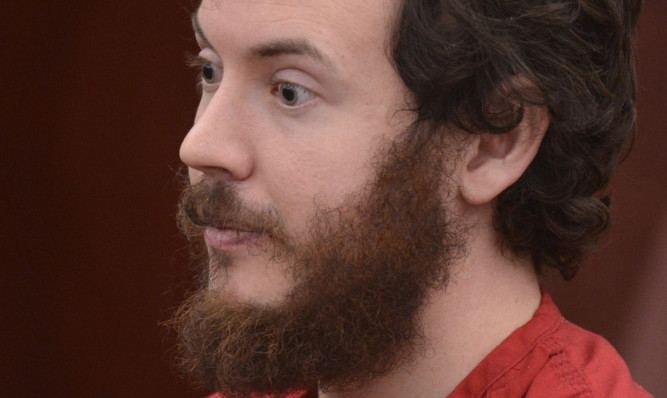Prosecutors are to seek the death penalty against the Batman cinema gunman who killed 12 people and wounded 70 in Colorado.
Their decision came in a court hearing held four days after prosecutors publicly rejected an offer by James Holmes’ lawyers for him to plead guilty to avoid execution.
Prosecutors had said the proposal was not a valid plea bargain offer, although they could still agree to a plea before the case goes to trial.
Holmes’ lawyers are expected to argue he is not guilty because he was legally insane at the time of the shooting on July 20.
They balked at entering that plea last month, saying they could not make such a move until prosecutors made a formal decision on the death penalty.
Holmes had methodically stockpiled weapons and ammunition for his assault on a packed midnight screening of the Dark Knight Rises in Aurora and booby-trapped his apartment to explode and distract any police who responded.
The massacre was repeatedly cited by gun control advocates who pushed a hotly contested package through the Colorado state legislature last month.
The bills include a ban on the sort of high-capacity magazines that Holmes used to spray the cinema with dozens of bullets in a matter of seconds.
President Obama is scheduled to visit Denver this week to highlight the legislation as part of his push for more gun control following December’s Sandy Hook Elementary School massacre.
As the case against Holmes returns to court, survivors and families of the victims are uncertain about what happens next.
Pierce O’Farrill, who was shot three times, said that if the case goes to trial, “all of us victims would be dragged along potentially for years. It could be 10 or 15 years before he’s executed.
“I would be in my forties and I’m planning to have a family, and the thought of having to look back and reliving everything at that point in my life, it would be difficult,” he said.
Defence lawyers revealed in a court filing last week that Holmes would plead guilty if prosecutors allowed him to live out his days in prison with no chance of parole, instead of having him put to death.
That prompted an angry response from prosecutors. Holmes would give up his right to appeal by pleading guilty.
